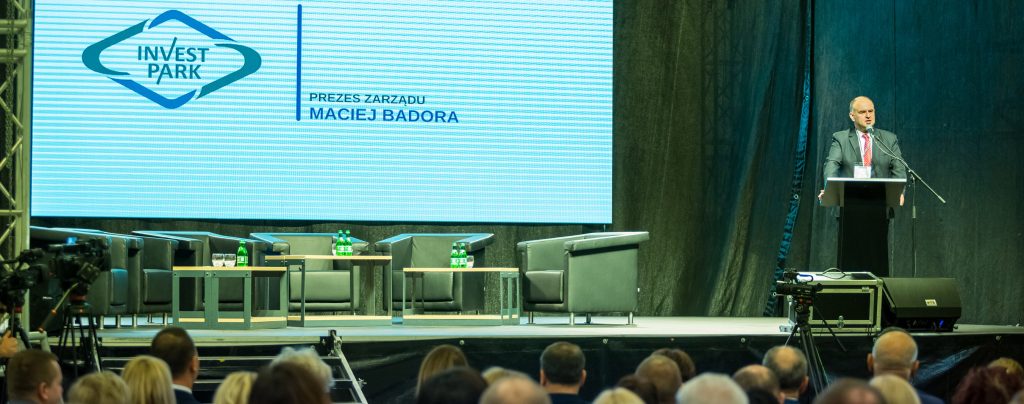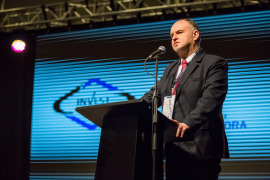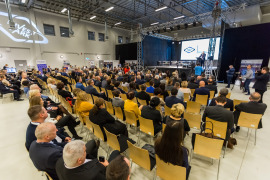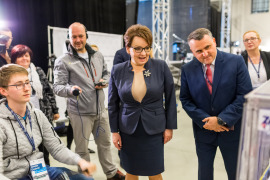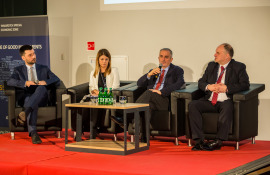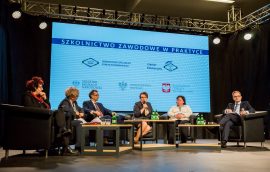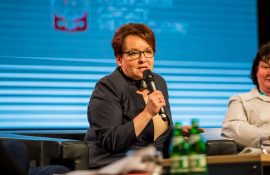More than 200 tenants, over PLN 25 billion of capital expenditure and 51,000 jobs – in a nutshell, these are the effects of two decades of existence of the Wałbrzych Special Economic Zone “INVEST-PARK”. To mark the jubilee, the WSEZ organized a conference in Wałbrzych devoted to the planned changes to the functioning of special economic zones and adapting vocational education to the needs of entrepreneurs. The meeting was attended by Anna Zalewska, Minister of National Education.
The conference “Investment – Education – Innovation” attracted over 200 guests, including representatives of self-governments from south-western Poland, heads of schools, entrepreneurs and members of the INVEST in EDU educational cluster, which is managed by the Wałbrzych zone. The event summarized the effects of the WSEZ’s functioning, which in 20 years has increased its territory almost fifteen-fold to become the largest of the 14 zones in Poland. It currently manages almost 3,800 ha of land in 58 subzones across four provinces: Dolnośląskie, Opolskie, Wielkopolskie and Lubuskie.
“Our tenants, both Polish and foreign, often emphasize the huge potential of the Wałbrzych zone. However, in order to use it properly, it is necessary to invest in the society, which is our greatest asset. Supporting processes such as vocational education is therefore part of our mission,” Maciej Badora, President of the WSEZ, said during the conference.
The event was divided into two blocks. The first one, addressed to representatives of self-governments, focused on the new formula for the functioning of special economic zones. Ewelina Łagoda of the Ministry of Development presented the idea of extending the SEZ status to all territories available to investors in Poland. The presentation was followed by a discussion panel with the speaker, Mr. Badora and Mayor of Wałbrzych Roman Szełemej. The conference participants were also acquainted with the possibility of creating an innovative system modeled on the development of start-ups in Poland. This presentation was given by Jacek Zimoch of PricewaterhouseCoopers.The second block was devoted to the changes occurring in vocational education – new curricula for professional schools and the adaptation of specializations to the needs of the economy.
“The revolution of Industry 4.0 is already happening, so we must keep up with it. It won’t be possible without realizing that self-governments and investors must focus on education. This is how vocational education is approached in Germany, Switzerland and Austria, and we want to adapt many solutions from them,” said Mrs. Zalewska.
The advantages of the German system of education were outlined by Christiane Eberhardt of the Federal Institute for Vocational Education and Training, and Anna Block of the Hamburg-based company Grone-Schulen Niedersachen. Krystyna Wiaderny-Bidzińska of the Innovation Department of the Ministry of Development talked about the influence of skilled workers on the development of Poland’s economy. Finally, Deputy President of the WSEZ Krzysztof Drynda presented examples of good practices in the cooperation between enterprises and schools in the zone’s educational cluster. The invited guests could also visit stands of schools and universities presenting their achievements and offer. The conference was held under the patronage of the Ministry of National Education and the Ministry of Development.
